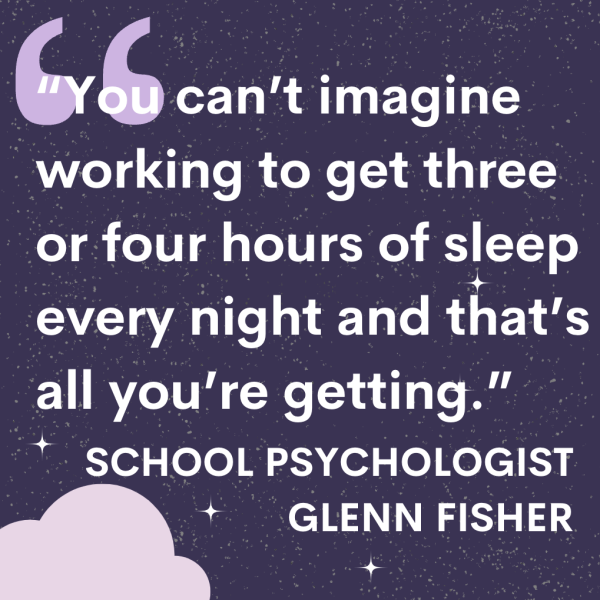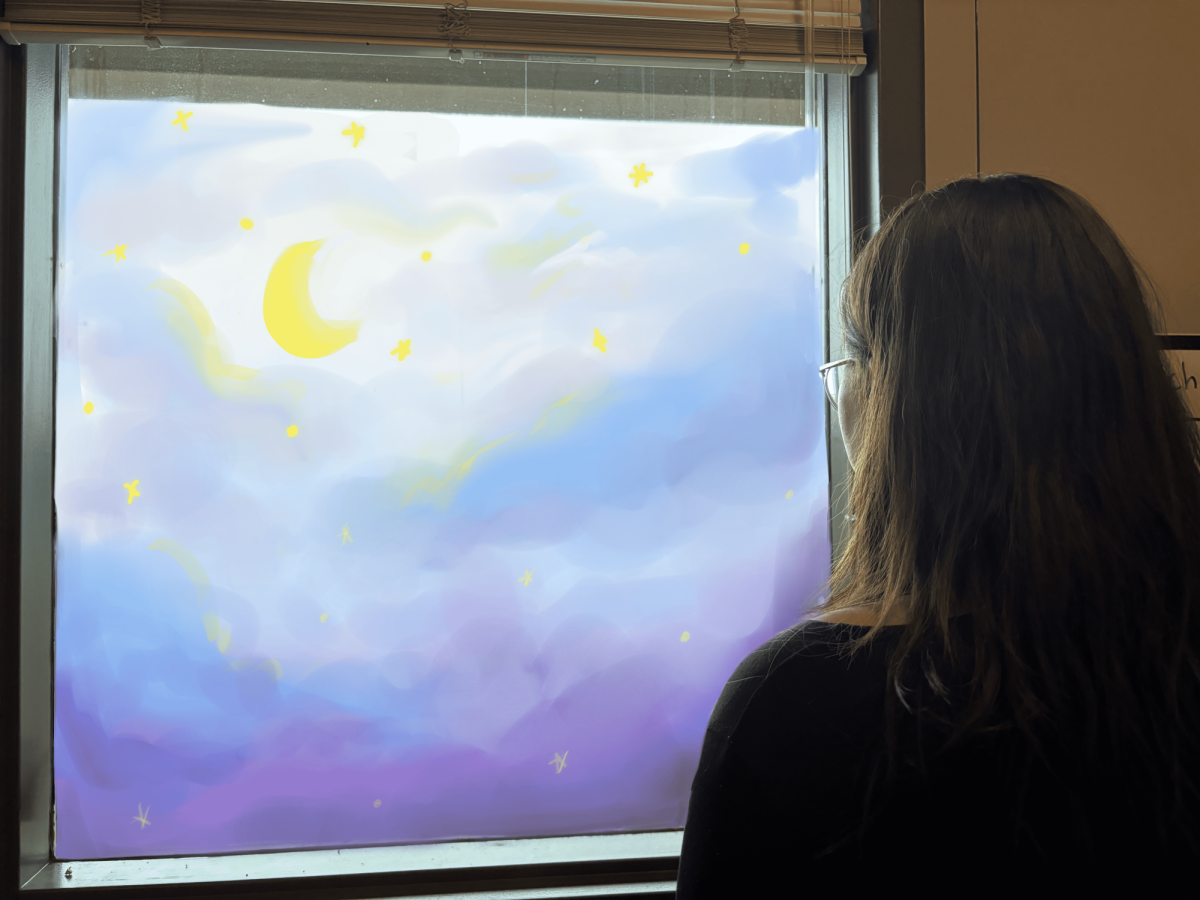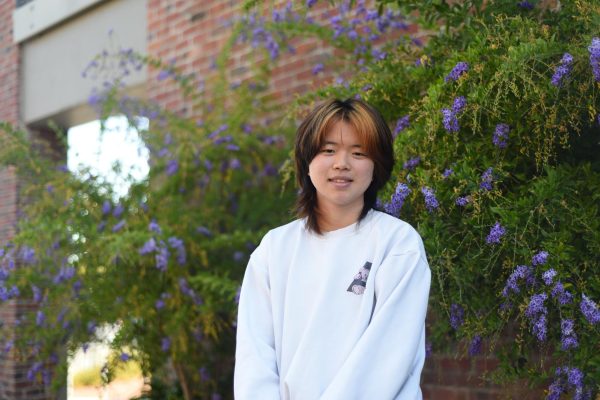The DSM-V — the fifth edition of the Diagnostic and Statistical Manual of Mental Disorders, used by mental health professionals as a standard for diagnosis — lists 10 separate sleep disorders, the most common being insomnia. While the DSM-V provides guidelines as to what warrants a diagnosis, symptoms associated with insomnia, such as an inability to sleep, tiredness during the day and mental and physical impairment, are common among MVHS students due to widespread sleep deprivation.
Senior Arda Cinnioglu struggles with insomnia symptoms caused by his ADHD medication, Adderall. While his medication helps him focus, his alertness lasts longer than usual, causing insomnia. While he would normally get seven to eight hours of sleep, he only gets around three or four when on his medication.
“It’s honestly torture because I really want to try and fall asleep but I just can’t,” Cinnioglu said. “So I’m just laying there for five hours, doing nothing and hoping I can go to bed.”
School-based therapist Akiko Chung has not personally worked with students with an insomnia diagnosis, as the disorder requires special treatment outside her scope of work. However, she does have experience treating students with poor sleep linked to anxiety or depression.
“Most students I work with who have a hard time falling asleep cannot shut off their brain,” Chung said. “Once they go to bed in the dark, they’re still creating a list of things they have to do. They start creating a list of things that they’re gonna fail. So I talk about the importance of doing mindfulness activities before they go to sleep, such as listening to peaceful music or just something to distract their brain.”
As a part of his job, school-based psychologist Glenn Fisher works with MVHS students with insomnia. He stresses the importance of sleep and says during sleep, hormones are released which are necessary for the physical, hormonal and neural changes that come with adolescence. A lack of sleep negatively affects students’ mood, attention and memory. Fisher adds that students should aim for nine hours of sleep, which they often do not achieve.
“Students are staying up till midnight or later trying to get stuff done, getting four or five hours of sleep,” Fisher said. “In some ways that has become part of a culture for some students. That was the new normal for them because it showed that they were studying a lot and working really hard.”
Fisher believes around 10% of students he works with have some level of insomnia. Some practices he recommends for falling asleep faster include not consuming high-sugar foods or caffeinated beverages before bed, maintaining a regular sleep schedule even on weekends and keeping the bedroom dark and quiet. He finds that fewer students have needed to ask for help with sleeping issues recently, and attributes this decrease to more students becoming aware of the importance of sleep through interventions done by the school.
“Staff and admin have done a really good job trying to educate students about the importance of sleep,” Fisher said. “The staff has worked hard to have this culture that sleep is important, and you need to get your sleep if you want to be fully functional and fully healthy and have well regulated mood states. Hopefully, students take that to heart.”

In accordance with Fisher’s sentiment, Cinnioglu tries to take his medication as sparingly as possible. The lack of sleep that accompanies it tends to worsen his mood and drain his energy throughout the day, to the extent that walking home after school can become difficult. As a result, he and his doctor plan to continue trying different medications until he hopes to find one with less severe side effects.
“I feel a lot more stressed out and anxious with the medication,” Cinnioglu said. “I do feel more focused. However, the side effects don’t always outweigh the benefits because I can’t enjoy much of my day. In the future, as you grow older, your ADHD becomes less and less severe and most people no longer need their medication, so I’m hoping that’s also the case for me.”
Ultimately, Fisher empathizes with students that have sleeping issues, having struggled with stress-induced insomnia himself. He says insomnia can be caused by a variety of issues, from schoolwork to anxiety to genetics, and manifests with several different levels of severity.
“I’ve had a handful of students I’ve worked with as a psychologist who live with insomnia every day of their lives,” Fisher said. “My heart goes out to them, you can’t imagine working to get three or four hours of sleep every night and that’s all you’re getting. They manage but it’s really hard on your body to not get quality sleep.”












